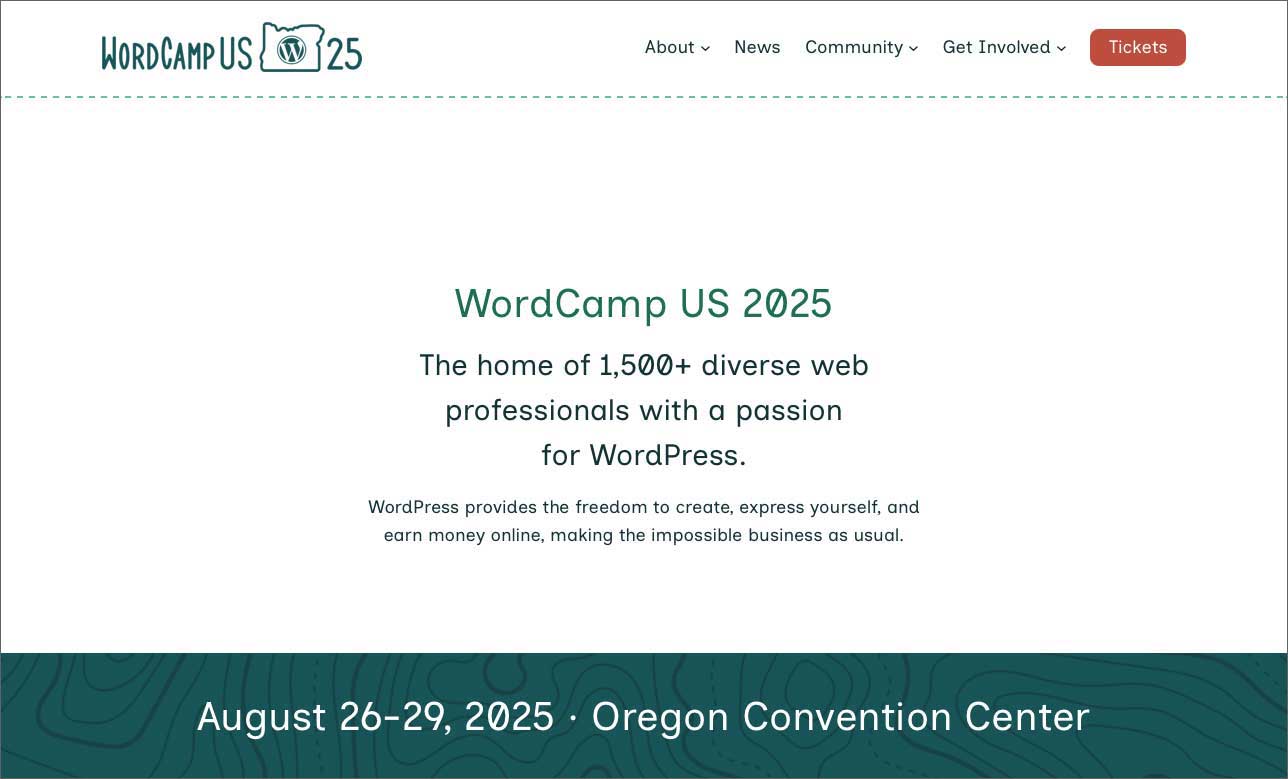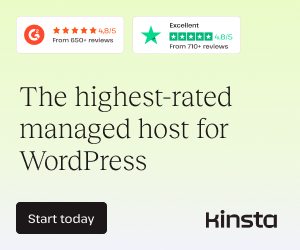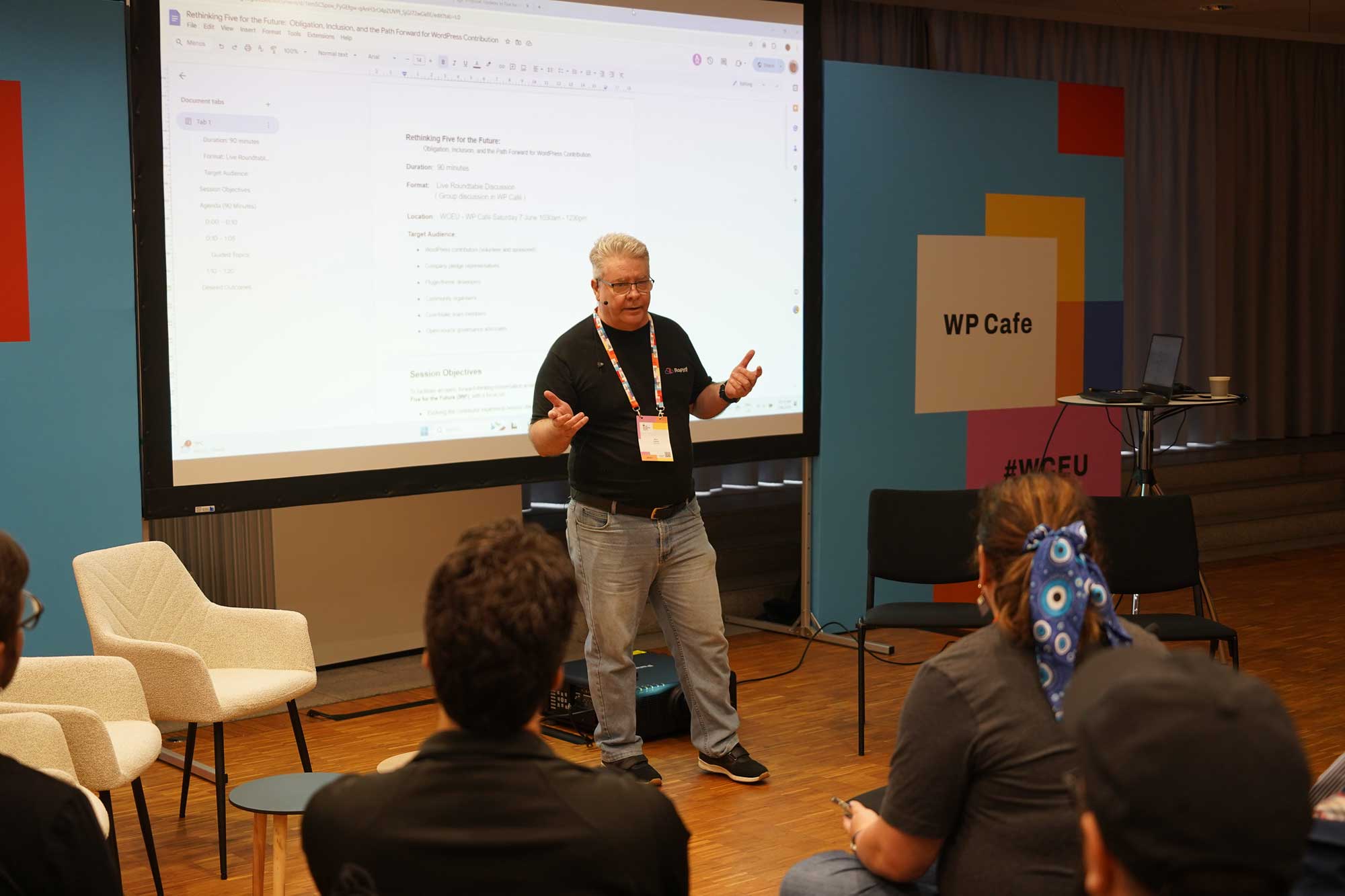A post from the official WordCamp US X account on Wednesday stirred confusion about Automattic’s involvement in this year’s flagship WordPress event — and reignited long-standing questions about how much control the company has over the conference’s programming.
“It is an Automattic event. Currently the programming team is curating all the programming and everything will be finalized through the Automattic events team. FYI the theme of the event is around the evolution of WordPress, AI and beyond, educating the users.”
The comment came in response to developer Daniel Hayes Smith, who had replied to an earlier WCUS post calling for speaker applications — asking about the talk selection process and whether WordPress co-founder Matt Mullenweg, who is also Automattic’s CEO, had the final say.
About three hours later, the account posted a clarification:
A stray post and a familiar debate
It’s understood the original post was written by Karla Campos, a first-time WCUS organizer and one of four people leading this year’s event. She followed up with a personal statement:
Hayes Smith, a three-time WCUS organiser, responded with an apology of his own:
Mullenweg also weighed in, backing Campos:
That prompted a reply from James Welbes at therepo.org, pointing to a deeper — and recurring — concern:
Welbes’ comment echoed what many in the WordPress community have been saying for years: the boundaries between Automattic, the open source WordPress project, the nonprofit WordPress Foundation, and the for-profit WordPress Community Support remain unclear — and, as Campos’s tweet showed, even confusing to WordCamp organizers themselves — especially when it comes to who makes the final call for flagship events like WCUS.
Who’s organizing WCUS 2025?
Campos is joined by three other lead organizers who are also new to leading WCUS: Gale Wallace (Customer Success Manager at Pantheon), Nicholas Garofalo (Director of Marketing for WordPress.org at Automattic), and Megan Marcel (Head of Global Events at Automattic).
The full organizing team — including contributors from companies like Automattic, Pantheon, Dreamhost, and Newfold Digital, as well as many self-employed volunteers — was published Thursday on the WCUS website.
The Repository contacted Automattic’s PR team to clarify Automattic’s role — including whether Marcel is contributing as a sponsored organizer, or whether Automattic’s Events team is directly involved in planning — but hasn’t yet received a response.
According to several sources who have been involved in organizing flagship WordCamps, Mullenweg typically has the final say on WCUS speaker selection. In previous years, speaker announcements have reportedly been delayed by weeks while awaiting his approval.
WordCamp US, like other WordCamps, is officially overseen by WordPress Community Support, PBC — a public benefit corporation created to provide legal and financial infrastructure for WordCamps. It is a separate legal entity from the WordPress Foundation, the nonprofit that holds the WordPress trademark.
In 2023, Foundation officer Harmony Romo published a clarification outlining the relationship between the two entities.
Ticket sales down amid challenging backdrop
WordCamp US 2025 returns to Portland this August — but with late planning, slow ticket sales, and ongoing tension in the community, it’s off to a rough start.
According to publicly available revenue data from WordCamp Central, just 223 tickets have been sold so far for WCUS 2025. By this time last year, WCUS 2024 had sold 949 tickets, with 1,928 total tickets sold.
It’s not just ticket sales that are lagging. This year’s organizing team is navigating a uniquely tricky time for the WordPress community. WordCamp US 2024 ended on a contentious note, after Mullenweg used his closing keynote to publicly criticize WP Engine and its private equity backer, Silver Lake. The backlash was swift and ultimately led to legal action against both Mullenweg and Automattic, and renewed questions about the governance of the WordPress project.
Adding to the challenge, planning for this year’s event got off to a late start. Several experienced organizers stepped back — some after leaving Automattic in the October 2024 layoffs, others due to burnout or other reasons. As The Repository reported in May, the current lead team stepped in after a disrupted handover, with months of momentum already lost.
The timeline shows it. Calls for speakers, sponsors, and volunteers didn’t go out until late May — several weeks behind the 2024 schedule, when those calls were issued between mid-March and early April.








Leave a Reply